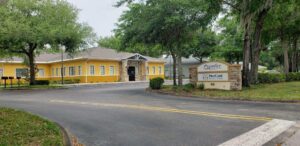When readers last stopped by, they learned about hand injuries caused by car accidents. This week, we have come to offer good news. ProCare Health & Rehab Centers can treat broken hands to prevent long-term effects.
When to see a doctor for a broken hand:
 Although we mostly see children walking around with broken hands in casts, adults sometimes have accidents too. Falling, tripping, and slipping become more common especially as we get older and loose equilibrium. Remember, if your hand is broken and a bone is showing, do not hesitate to call an ambulance- especially if there is excessive bleeding.
Although we mostly see children walking around with broken hands in casts, adults sometimes have accidents too. Falling, tripping, and slipping become more common especially as we get older and loose equilibrium. Remember, if your hand is broken and a bone is showing, do not hesitate to call an ambulance- especially if there is excessive bleeding.
There is no way for people, not in the medical field, to tell if an artery has been punctured. Bleeding is a major concern also if there is numbness in the fingers or fingertips. A huge loss of blood is no small issue. This can bring along more serious issues.
Proper alignment for a broken bone must be top priority. If a bone is not put back into its proper alignment, it may never be the same. Or even worse, the hand may not function the same as before.
Similarly, there may be ongoing pain due to the placement and function of the bones. This is why ProCare wants to make it known that there is safe, successful long-term oriented treatment for a broken hand. Our medical professionals will tell patients if the broken hand requires a surgery due to many bone fragments.
Complications:
As rare as they may be, complications for broken hands or wrists may come up. First, stiffness, aching, and disability are the first concerns. It is especially concerning when the patient avoids using the affected hand due to stiffness or lasting pain.
 This sort of pain is normally a thing of the past once the cast is removed. However, some individuals experience this after. In this case, physical and occupational therapy may be necessary to regain normal function.
This sort of pain is normally a thing of the past once the cast is removed. However, some individuals experience this after. In this case, physical and occupational therapy may be necessary to regain normal function.
Osteoarthritis is a possible complication of broken bones. If fractures extend into a joint, it can cause arthritis later on- possibly even years later. When hands start to hurt or swell long after a broken hand or wrist, see a physical therapist such as one at our office for an evaluation.
When there is a trauma to the hand or wrist, adjacent nerves or blood vessels may also be injured. Always seek immediate attention if you have numbness or circulation problems. These issues can also be signs of extremely serious health issues such as a stroke or heart attack.
Prevention and treatment:
Although it is nearly impossible to prevent unforeseen car accidents, you can always be proactive during the time after an accident. Do not put off medical attention and follow-up care. Build bone strength after a broken bone by monitoring what you are putting into your body.
 Eat a nutritious diet with adequate calcium and vitamin D. Do sufficient weight-bearing exercises such as brisk walking. It is never a bad idea to quit smoking if you currently smoke too.
Eat a nutritious diet with adequate calcium and vitamin D. Do sufficient weight-bearing exercises such as brisk walking. It is never a bad idea to quit smoking if you currently smoke too.
For patients that fall more often than normal, an eye exam would not be the worst idea. Get your eyes checked annually thereafter. Wear sensible shoes and remove throw rugs that pose threats in your own environment. For elderly or those with lasting physical impairments, install handrails in stairways and grab bars in bathrooms.
Prepare for dangerous terrain such as slippery, wet floors or sidewalks. Please reach out to us if you have any of the previously mentioned issues. Broken hands and wrists can sadly bring along lifelong issues if they are not treated properly. Give us a call and inquire about COVID-19 protocols.
Staff Writer



